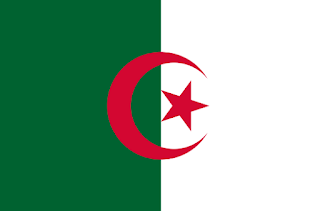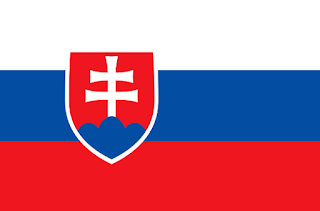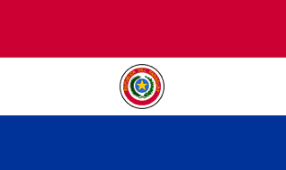FACTS ABOUT GHANA
AMAZING
FACTS ABOUT GHANA
1.
The official name of Ghana is the “Republic
of Ghana”.
2.
Accra is the capital city of Ghana.
3.
The total population of Ghana is 27,499,924.
4.
The natives of Ghana are called
Ghanaians.
5.
The Ghana cedi (GHS) is the official
currency of Ghana.
6.
Ghana shares a border with Côte
d'Ivoire, Burkina Faso and Togo.
7.
Culture and tradition of the Ghanaian
people of West Africa are mixed especially due to the fact that the country
boasts of several tribes that uphold their different cultural orientations as
well as their varied ways of life. In as much as there is a multiplicity of
different ethnic groups, the culture is overall unified and as such, Ghana has
enjoyed political stability in the region even after the post-Colonial era.
8.
Polygamy is legal and people do not have
a problem with the polygamous families in so far as the breadwinner can
sufficiently provide for the families. However, marrying more than one wife is
most often than not a reserve for the wealthier as well as powerful members of
the society.
9.
Generally, Ghanaian culture lays more
emphasis on being hospitable to everyone in the society, practicing good
manners in every setting as well as respect for everyone.
10.
In as much as Ghanaian culture and
traditional beliefs are found to vary from one ethnic group to the other, the
Akan religious practices laid more emphasis on ancestral intercession coupled
with beliefs in other gods, spirits, and goddesses.
11.
With time and changes taking place in
the world today, Ghana has not been left behind in that Christianity has
influenced most of their traditionally held beliefs and many people today are
found to abandon polygamy and practice monogamy which is a widely held belief
practiced by Christians.
12.
Ghana uses English as their official
language which however has a distinctive West African Accent.
13.
Akan is the most popularly used language
in Ghana after English spoken by nearly 67.1% of the inhabiting people.
14.
Ghana was the first country to gain
independence in West Africa from the British people.
15.
The country was named after the medieval
empire of West Africa which initially was Wagadugu.
16.
Some of the people found living in Ghana
today are believed to have ancestors linked with medieval Ghana especially
people from the Northern region.
17.
Ghana before 1957 was commonly known as
the Gold Coast due to the availability of gold along the rivers Ankobra and
Volta.
18.
The gold availability in the region
created vested interests between the British, Portuguese resulting to rivalry
in 1482.
19.
After the World War II, educated
Ghanaians thought it wise that they could seek independence of their country
and liberate themselves from oppression.
20.
The war veterans were prominent taking
forward the struggle for liberation with the notion that colonization was a
form of oppression. They began fighting it.
21.
In the year 1945, during a meeting in
Manchester attended by Kwame Nkrumah, serious concerns on independence were
raised giving way to Pan-African consciousness.
22.
Ghana had their first constitution in
1946.
23.
Kwame Nkrumah became the first president
of independent Ghana after they gained independence in 1957.
24.
Most Ghanaian people dress in brightly
colored clothing preferably made of silk.
25.
Ghanaians enjoy dancing, playing the
drums and like food.
26.
Ghana has enjoyed periods of both war
and peace even after independence.
27.
The terrain in Ghana is mostly of
low-lying plains with notable hills well distributed throughout the country.
28.
People in Ghana mostly speak English
though other native languages are widely spoken like Akan, Ewe, Ga and
Moshi-Dagomba.
29.
Ghana has a population growth rate of
2.2% (2017 est.)
30.
Literacy levels are high in Ghana with
76.6% of the people having the ability to read and write.
31.
Religiously, Ghana has Christians and
Muslims as well as some other few local religions.
32.
Currently, the country has an
approximate population of 27,499,924 people.
33.
Ghana kids mostly pass their time after
formal school hours either playing games or dancing.
34.
Ghana struggles with poverty in the
region due to its high population rate.
35.
Most of the people living in the
southern part of the country are considered rich than those in the North.
36.
Overall poverty rates are declining in
Ghana as compared to other countries in the Sub-Saharan Africa. Thus the
country is considered to be the leading nation in Africa pin meeting the MDGs
(Millennium Development Goals).
37.
Agriculture is the major employer in the
country thus most people are found farming their lands translating to high poverty
rates.
38.
However, the country struggles to be a
middle income earning country due to its long political stability in the
region.
39.
The rate of economic growth has been
sluggish due to inflation in the past two years.
40.
The government has been involved in
finding measures to restore sanity in the markets with more efforts on
regulating, borrowing locally than abroad though the efforts are characterized
by uncertainty.
41.
Starting a business in Ghana has been
made easy with the little bureaucracy involved and regulated business freedom.
42.
The Ghanaian government is committed to
removing all taxes on fuel among other subsidies in a bid to cushion marketing
and other business minded people.
43.
Foreigners are encouraged to invest in
the country provided they are legally registered with the government.
44.
Ghana is a West African country located
in the Gulf of Guinea (see below.)
45.
The country borders Burkina Faso to the
North, Togo to the East and the Atlantic Ocean is to the South.
46.
In comparison, Ghana covers an area
which is slightly smaller than Oregon.
47.
The capital City of Ghana is Accra which
has a population of approximately 2.273 million people (2015 est.)
48.
The main Cash crop grown in Ghana is
Cocoa.
49.
Most of the Ghanaian foods are
traditional reflective of the country’s history as well as agriculture.
50.
The delicacy for most people is boiled
cassava, plantains, and yams which are rolled into balls commonly known as
fufu.
51.
Most, if not all dishes in Ghana are
spiced up mainly with chilies and red peppers.
52.
Ghana boasts of having the largest
open-air market in West Africa located in Kumasi where people go to buy
clothes, fabric as well as garments.
53.
Ghanaians celebrate a dancing festival
held annually and most of their celebrities are known globally as not allowing
their wealth or even statuses affect their daily living.
54.
Ghana Exports: oil,
gold, cocoa, timber, tuna, bauxite, aluminum, manganese ore, diamonds and
horticultural products.
55.
Ghana Imports:
capital equipment, refined petroleum and foodstuffs.
56.
The internet country code for Ghana is .gh.




Comments
Post a Comment